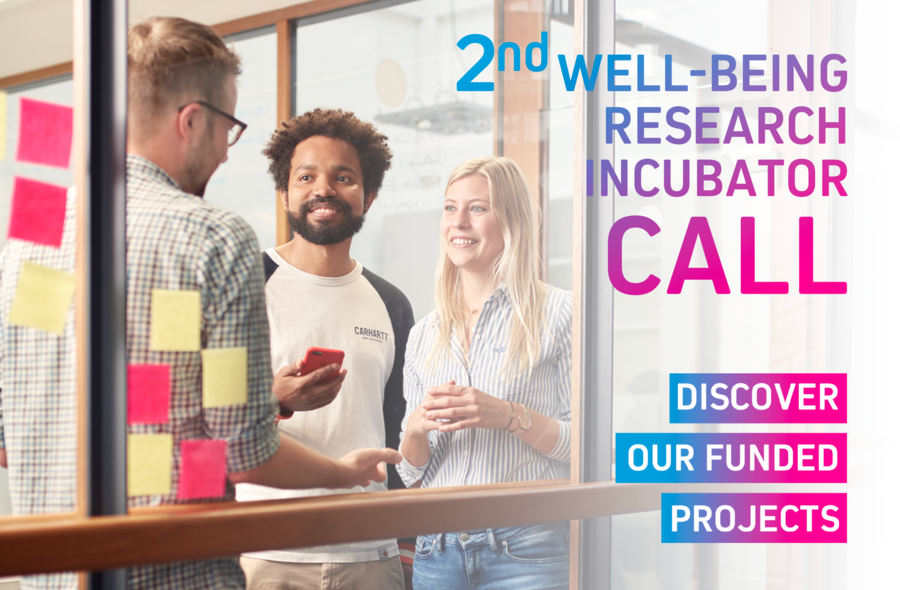Discover the selected projects of the second Well-Being Research Incubator call
Explore the future of health and well-being through five groundbreaking projects funded by the second call of the Well-Being Research Incubator Programme. These projects explore various topics, such as how gender norms affect health and address the mental well-being of young people in the context of climate change.
The EUniWell Well-Being Research Incubator Programme is an integral part of the EUniWell #Research initiative. Each of its projects brings together at least three EUniWell universities with the collective goal to explore and exploit their complementary knowledge and expertise in relation to a chosen research theme. In doing so, the Well-Being Research Incubator Programme provides EUniWell researchers with access to the network of our established, well-connected European University Alliance. Since the start of the programme in 2022, the initiative has supported researchers to connect and exchange ideas through the realisation of 25 collaborative workshops. These workshops aimed to develop collaborative project ideas and with the second round now complete, a total of 10 proposals have been selected by EUniWell to become funded projects.
A snapshot of the selected projects
AGEWELLSITY: UniverSITY for the WELL-being of AGED people
The AGEWELLSITY project brings together partners from the University of Birmingham, University of Cologne, Linnaeus University, University of Murcia and Semmelweis University. They aim to develop a research agenda to investigate and identify factors that allow universities to become more age-friendly.
Well-being and Ecosocial Crisis: Youth Perceptions on Mental Health and Climate Change
In contrast, researchers from the University of Birmingham, the University of Murcia and Nantes Université are concerned with the well-being of young people. They plan to explore young people’s perceptions of mental health and climate change by analysing emotional responses to climate change from a perspective of everyday lived experiences or ‘lived connection’ with the local environment.
AI-driven Tools in Healthcare: A Visual Guideline for Trustworthy Treatment Decision Support Systems
Artificial Intelligence is the focus of this project from the University of Murcia, Nantes Université, Linnaeus University and Semmelweis University, which will develop guidelines for the use of AI in treatment decision support systems. The guidelines will be developed through the collaboration of these four EUniWell member universities and aim to identify knowledge gaps and opportunities, leading to recommendations for further research.
Protocol to study cytoskeleton at the molecular level with cryo-electron microscopy
Another project aiming to find new solutions to support our health and well-being will develop a protocol to study the cytoskeleton at the molecular level with cryo-electron microscopy. Combining the analysis of the dynamic complex components (Nantes Université) with state-of-the-art cryo-EM methods and infrastructure (University of Cologne) and adding the development of tailored algorithms to solve current methodological bottlenecks (University of Murcia) will enable the partners to establish techniques to help facilitate and accelerate the application of the latest powerful EM methodologies.
Design and validation of a questionnaire to measure traditional gender norms and their impact on health and well-being
Health is also the theme of a project to develop a questionnaire measuring the impact of gender norms on health and well-being. Through the questionnaire, researchers from the University of Florence, the University of Murcia and Nantes Université aim to provide a new understanding of gender, enabling the effective incorporation of a gender perspective in health research.
In the realm of well-being, these diverse projects illuminate a path forward: age-friendly universities, youth resilience in a changing climate, AI-guided healthcare, molecular insights into cellular structures, and a nuanced understanding of gender's impact. Stay tuned for the unfolding discoveries and insights that will shape the future of health and well-being.
Further information
Find further information on the Well-Being Research Incubator here.
The Well-Being Research Incubator Programme is developed under the umbrella of the EUniWell #Research project as part of the H2020 programme under the Science with and for Society (SwafS) call.The selected projects receive funding from the European Union’s Horizon 2020 research and innovation programme under grant agreement No 101035821.
Stay in touch & up-to-date!
Follow us on our social media channels:
Twitter
LinkedIn
Instagram
Facebook
And subscribe to our EUniWell newsletter for regular highlights and save-the-dates to upcoming EUniWell events delivered straight to your inbox:

